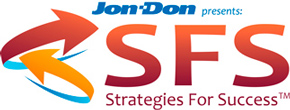 Some years ago I read an article in a flight magazine by a Pakistani author. In the article he pointed out an interesting distinction between North American business and his native Pakistan culture. He pointed out that Pakistanis were inclined to “just be” whereas North Americans always feel they need to be “doing something”.
Some years ago I read an article in a flight magazine by a Pakistani author. In the article he pointed out an interesting distinction between North American business and his native Pakistan culture. He pointed out that Pakistanis were inclined to “just be” whereas North Americans always feel they need to be “doing something”.
He thought this need to be always “doing something” was so ingrained it even worked its way into our everyday language as in: “What are you DOING for lunch?” “What are you DOING this weekend?” “What do you going to DO about this?”
Some people even judge their self worth based on how “busy” they feel. The things they DO don’t even have to be effective as long as they’re just DOING something!
I’m certainly no expert on Pakistani culture (or any culture for that matter including my own!) but I can vouch for the fact that many North American business people are predisposed to always be “DOING stuff”. And that’s not all bad. Sometimes we’re required to take action immediately. Equipment needs to be repaired. Customers have emergencies.
But there are times when “doing something” isn’t necessarily the best course of action. When you think about it, doing something means we’re replacing one activity with another and sometimes with little or no thought as to whether the new activity will be any better than the activity we’re replacing! But we’re so accustomed to doings things, to feeling busy, that when we aren’t doing something, we feel we’re being unproductive.
Add to this the fact that sometimes we business owners can act like real knuckleheads in our companies. We say and do things without a lot of thought to the impact they may have on our people. Then, when we realize the error of our ways, we fall all over ourselves playing the “nice guy” trying to undo the stupid things we did. Too often, this just messes things up even more.
Sometimes the best strategy to fix a business problem is just to STOP! No, really- STOP! Don’t do anything. JUST BE! Rather than immediately trying to leap tall buildings in a single bound with your cape flying in the wind behind you just stop. Think the situation through. Give the events that may be obscured by the fog of the moment time to come into full view.
Ask yourself whether the situation really requires your immediate action. Will your intervention really solve the problem and/or improve the situation? Or, would taking time to stop and think the situation through provide other people in your organization—people you’re trying to develop—the incentive and the time they need to solve the problem on their own? Would your refusal to intervene give your people a better opportunity for professional growth within your organization?
One business owner I know refers to this strategy as “Inspired Neutrality.” My SFS co-instructor, Steve Toburen, calls it “Creative Procrastination”. Either way, it is the intentional decision NOT to jump into action and sometimes this strategy just makes a lot of sense. It can be exactly the management strategy that’s called for in a given situation.
NOTE: If you’ve ever attended one of my Business Planning Retreats (or Jon-Don’s five day Strategies for Success seminar) you can attest that an invaluable part of these programs is they provide business owners time to get off the daily merry-go-round of business so they can STOP AND THINK!
So, the next time you find yourself itching to “do something” ask yourself whether your “doing” will actually just “undo” things that may have already been done!
Chuck Violand (more about Chuck)
SFS Instructor
CEO Violand Management Associates
